

Every couple of months, one of my users falls prey to
phishing
attacks, and send their login/password data to an unknown somebody
who poses as Well, as me, their always-friendly and always-helpful
systems administrator.
What follows is, of course, me spending a week trying to get our
systems out of all of the RBLs/DNSBLs. But, no matter how fast I act,
there s always distruption and lost mails (bounced or classified as
spam) for my users.
Most of my users use the Webmail I have configured on our institute s
servers,
Roundcube, for which I have the
highest appreciation. Only that Of course, when a user yields their
username and password to an attacker, it is very successful
at Sending huge amounts of unrequested mail, leading to my server
losing its reputation
This week, I set two bits of mitigation strategies. The first one,
most straightforward, was to ask Roundcube to disallow sending mails
with over ten recipients. In a Debian install, this is as easy as
setting up the following variable in
/etc/roundcube/config.inc.php:
$config['max_recipients'] = 10
However, a dilligent spammer can still clog the server by sending
many, many, many,
many requests maybe each of them with ten
recipients only; last weekend, I got a new mail every three seconds or
so.
Adding rate limit to a specific Roundcube action is
not easy,
however, or at least it took me quite a bit of headbanging to get it
right . Roundcube is a very AJAX-y system where all (most, at least)
actions are received by
/index.php and there is quite a bit of
parsing to do to understand the actions done. When sending a mail, of
course, it is done using the
POST HTTP verb, and the URI-specified
variables include
_task=mail&_unlock=loading<message_id> (of course,
with changing message IDs).
After some poking here and there, I faced to
SpiderLabs
ModSecurity Only
that I am not yet well versed in writing rules for it. But after quite
a bit of reading, poking, breaking I was able to come up with the
following rules:
# How often does the limit counter expire ratelimit_client=60,
# every 60 seconds
SecRule REQUEST_LINE "@rx POST.*_task=mail&_unlock" id:10,phase:2,nolog,pass,setuid:% tx.ua_hash ,setvar:user.ratelimit_client=+1,expirevar:user.ratelimit_client=60
# How many requests do we allow in the specified time period?
# @gt 3, 3 requests
SecRule user:ratelimit_client "@gt 2" chain,id:100009,phase:2,deny,status:429,setenv:RATELIMITED,log,msg:RATE-LIMITED
SecRule REQUEST_LINE "@rx POST.*_task=mail&_unlock"
The first line specifies the rule will match request lines specifying
the POST verb aind including the
_task=mail&_unlock fragment in the
URL. It increments tht
ratelimit_client user variable, but expires
it after 60 seconds.
The first line verifies whether the above specified variable (do note
that it s
user: instead of
user.) is greater than 2. If so, it
sets the
deny action, HTTP return status of 429 (
Too Many
Requests), and logs the reason why this request was denied
(rate-limited).
And Given the way Roundcube works, this even works transparently!
If a user hits the limit, the mail sending component will just wait
and, after a while, time out. Then, the user can click
Send
again. If legitimate users are too productive and try to send over
three mails in a minute, they won t lose any of it; spammers will
(hopefully!) find it unbearably slow and give up.
Logging is quite informative; I will probably later restrict it to
show fewer parts (even if just for privacy sake, as it logs the full
request!) For a complex permissions framework such as mod_security,
having information such as the following is most welcome in order to
find a possibly misbehaving rule:
--76659f4b-H--
Message: Access denied with code 429 (phase 2). Pattern match "POST.*_task=mail&_unlock" at REQUEST_LINE. [file "/etc/modsecurity/rate_limit_sender.conf"] [line "20"] [id "100009"] [msg "RATELIMITED BOT"]
Apache-Error: [file "apache2_util.c"] [line 273] [level 3] [client 192.168.1.48] ModSecurity: Access denied with code 429 (phase 2). Pattern match "POST.*_task=mail&_unlock" at REQUEST_LINE. [file "/etc/modsecurity/rate_limit_sender.conf"] [line "20"] [id "100009"] [msg "RATELIMITED BOT"] [hostname "my.server.mx"] [uri "/roundcube/"] [unique_id "YMzJLR9jVDMGsG@18kB1qAAAAAY"]
Action: Intercepted (phase 2)
Stopwatch: 1624033581838813 1204 (- - -)
Stopwatch2: 1624033581838813 1204; combined=352, p1=29, p2=140, p3=0, p4=0, p5=94, sr=81, sw=89, l=0, gc=0
Response-Body-Transformed: Dechunked
Producer: ModSecurity for Apache/2.9.3 (http://www.modsecurity.org/).
Server: Apache
WebApp-Info: "default" "-" ""
Engine-Mode: "ENABLED"
I truly, truly hope this is the last time my server falls in the black
pits of DNSBL/RBL lists
 So today is the day when a new Debian release comes out!
Congratulations to everybody, and thanks a lot mainly to the Release
Team. Lots of very hard work was put into making Debian 11 Bullseye
a reality!
My very personal way to celebrate this was to do a somewhat different
Debian install at home. Why different? Well, I have quite a bit of
old, older and frankly elderly laptops at home. And as many of you
know, I have done more than my fair share of Raspberry Pi
installs I have played and worked with
assorted ARM machines at least since 2013, and I cannot consider
myself a newbie with them by any means.
But this is the first time I installed Debian on a mass-market,
decently-specced ARM64-based laptop. Yes, I know the Pinebook has been
there like for ages, but it really does feel like a computer to show
off and not to use seriously (and I ve seen probably too many people
fiddling with it, unable to get $foo to work). So I got myself a used
Lenovo Yoga
C630. Yes,
a discontinued product it seems Lenovo was not able to properly
market this machine, and it had a pretty short shelf life the
machine was available for samples in late 2018 and for general sale in
2019! The specs are quite decent:
So today is the day when a new Debian release comes out!
Congratulations to everybody, and thanks a lot mainly to the Release
Team. Lots of very hard work was put into making Debian 11 Bullseye
a reality!
My very personal way to celebrate this was to do a somewhat different
Debian install at home. Why different? Well, I have quite a bit of
old, older and frankly elderly laptops at home. And as many of you
know, I have done more than my fair share of Raspberry Pi
installs I have played and worked with
assorted ARM machines at least since 2013, and I cannot consider
myself a newbie with them by any means.
But this is the first time I installed Debian on a mass-market,
decently-specced ARM64-based laptop. Yes, I know the Pinebook has been
there like for ages, but it really does feel like a computer to show
off and not to use seriously (and I ve seen probably too many people
fiddling with it, unable to get $foo to work). So I got myself a used
Lenovo Yoga
C630. Yes,
a discontinued product it seems Lenovo was not able to properly
market this machine, and it had a pretty short shelf life the
machine was available for samples in late 2018 and for general sale in
2019! The specs are quite decent:
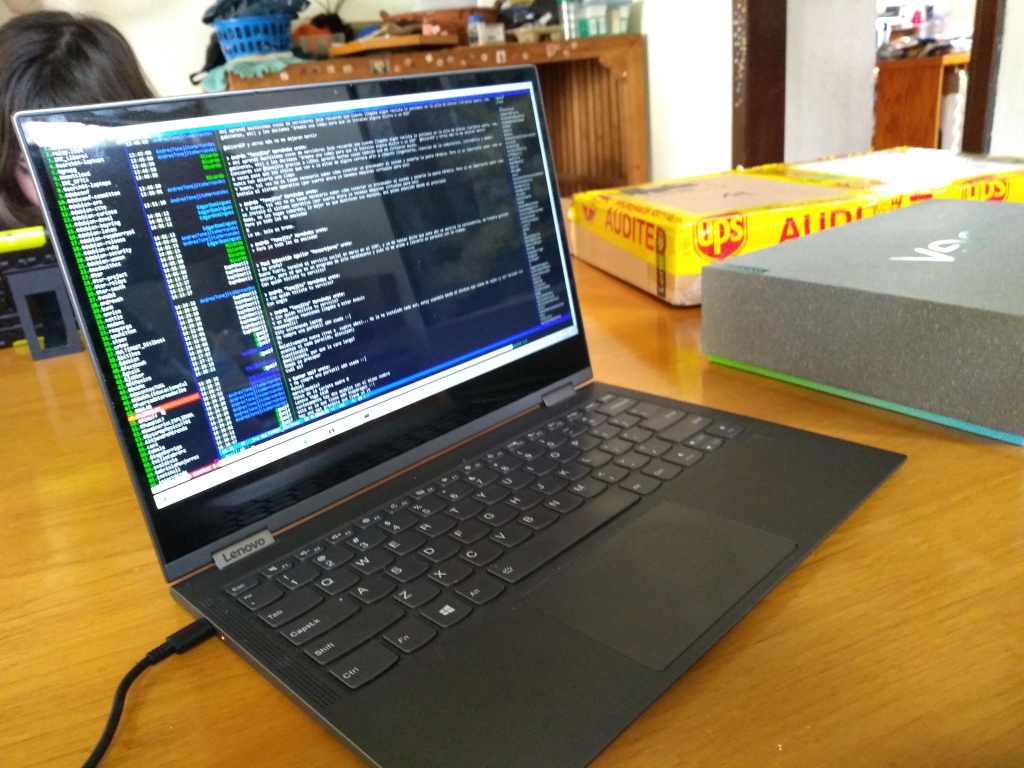 Installing it via an almost-standard
Installing it via an almost-standard  Every couple of months, one of my users falls prey to phishing
attacks, and send their login/password data to an unknown somebody
who poses as Well, as me, their always-friendly and always-helpful
systems administrator.
What follows is, of course, me spending a week trying to get our
systems out of all of the RBLs/DNSBLs. But, no matter how fast I act,
there s always distruption and lost mails (bounced or classified as
spam) for my users.
Most of my users use the Webmail I have configured on our institute s
servers,
Every couple of months, one of my users falls prey to phishing
attacks, and send their login/password data to an unknown somebody
who poses as Well, as me, their always-friendly and always-helpful
systems administrator.
What follows is, of course, me spending a week trying to get our
systems out of all of the RBLs/DNSBLs. But, no matter how fast I act,
there s always distruption and lost mails (bounced or classified as
spam) for my users.
Most of my users use the Webmail I have configured on our institute s
servers,  This FLISOL was hosted by the always great and always interesting
This FLISOL was hosted by the always great and always interesting

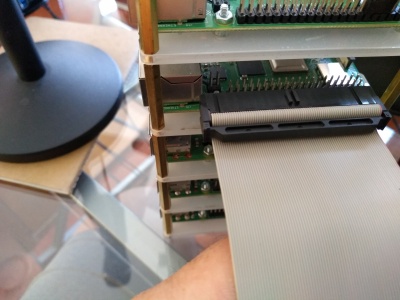
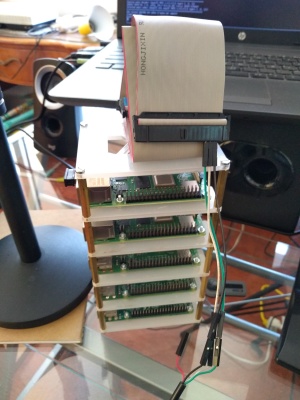
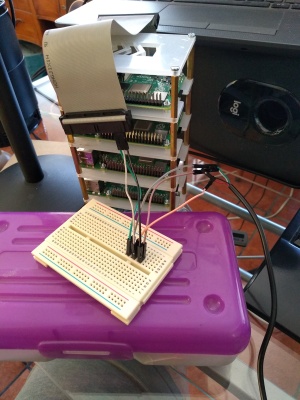


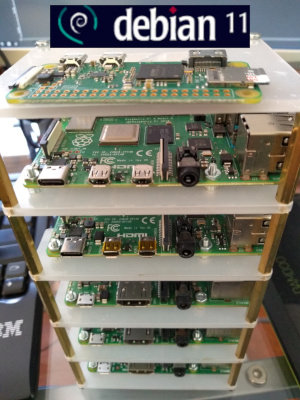 Oh Yes,
Oh Yes, 
 So, the State had record of a child being born, and we knew where to
look if we came to need this information. But, many years later, a
very sensible tecnification happened: all records (after a certain
date, I guess) were digitized. Great news! I can now get my birth
certificate without moving from my desk, paying a quite reasonable fee
(~US$4). What s there not to like?
So, the State had record of a child being born, and we knew where to
look if we came to need this information. But, many years later, a
very sensible tecnification happened: all records (after a certain
date, I guess) were digitized. Great news! I can now get my birth
certificate without moving from my desk, paying a quite reasonable fee
(~US$4). What s there not to like?
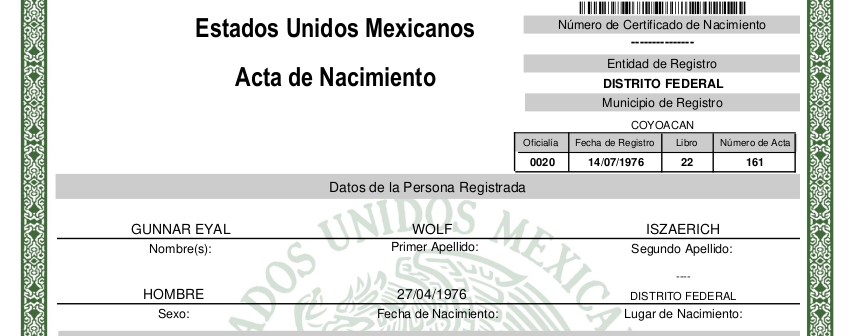 Digitally certified and all! So great! But But Oh, there s a
problem.
Of course Making sense of the handwriting as you can see is
somewhat prone to failure. And I cannot blame anybody for failing to
understand the details of my record.
So, my mother s first family name is Iszaevich. It was digitized as
Iszaerich. Fortunately, they do acknowledge some errors could have
made it into the process, and
Digitally certified and all! So great! But But Oh, there s a
problem.
Of course Making sense of the handwriting as you can see is
somewhat prone to failure. And I cannot blame anybody for failing to
understand the details of my record.
So, my mother s first family name is Iszaevich. It was digitized as
Iszaerich. Fortunately, they do acknowledge some errors could have
made it into the process, and 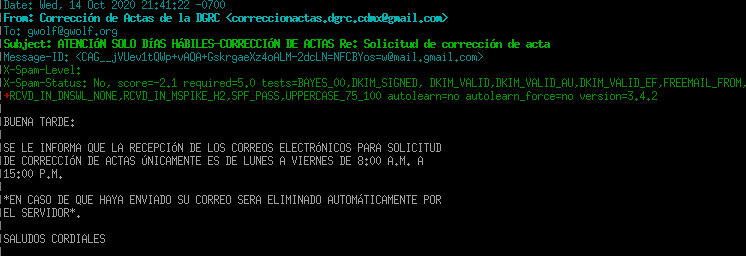 Yes, the mailing contact is in the
Yes, the mailing contact is in the  So finally, the greatest and meanest Raspberry is fully supported with
a pure Debian image! (only tarnished by the nonfree
So finally, the greatest and meanest Raspberry is fully supported with
a pure Debian image! (only tarnished by the nonfree


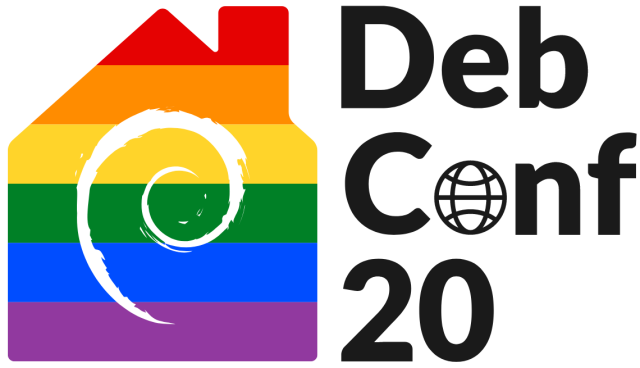 OK, one step back. Why are we doing this? Because our hardworking
friends of the DebConf20 video team recommended so. In order to
minimize connecitvity issues from the variety of speakers throughout
the world, we were requested to pre-record the exposition part of
our talks, send them to the video team (deadline: today
2020-08-16, in case you still owe yours!), and make sure to be present
at the end of the talk for the Q&A session. Of course, for a 45 minute
talk, I prepared a 30 minute presentation, saving time for said Q&A
session.
Anyway, I used the excellent
OK, one step back. Why are we doing this? Because our hardworking
friends of the DebConf20 video team recommended so. In order to
minimize connecitvity issues from the variety of speakers throughout
the world, we were requested to pre-record the exposition part of
our talks, send them to the video team (deadline: today
2020-08-16, in case you still owe yours!), and make sure to be present
at the end of the talk for the Q&A session. Of course, for a 45 minute
talk, I prepared a 30 minute presentation, saving time for said Q&A
session.
Anyway, I used the excellent  DebConf6
This tshirt is 14 years old and from DebConf6.
DebConf6
This tshirt is 14 years old and from DebConf6.

 Setting up the network uplink also was very challenging and took, I don't remember
exactly, until day 4 or 5 of DebCamp (which lasted 7 days), so there were group
of geeks in need of network, and mostly unable to fix it, because for fixing it
we needed to communicate and IRC was down. (There was no mobile phone data at that
time, the first iphone wasn't sold yet, it were the dark ages.)
I remember literally standing on a roof to catch the wifi signal and excitingly
shouting "I got one ping back! ... one ping back ...", less excitingly. I'll spare
you the details now (and me writing them down) but I'll say that the solution
involved Neil McGovern climbing an antenna and attaching a wifi antenna up high,
probably 15m or 20m or some such. Finally we had uplink. I don't recall if that
pig tail connector incident happened before of after, but in the end the network
setup worked nicely on the wide area we occupied. Even though in some dorms the
cleaning people daily removed one of our APs to be able to watch TV while cleaning
Setting up the network uplink also was very challenging and took, I don't remember
exactly, until day 4 or 5 of DebCamp (which lasted 7 days), so there were group
of geeks in need of network, and mostly unable to fix it, because for fixing it
we needed to communicate and IRC was down. (There was no mobile phone data at that
time, the first iphone wasn't sold yet, it were the dark ages.)
I remember literally standing on a roof to catch the wifi signal and excitingly
shouting "I got one ping back! ... one ping back ...", less excitingly. I'll spare
you the details now (and me writing them down) but I'll say that the solution
involved Neil McGovern climbing an antenna and attaching a wifi antenna up high,
probably 15m or 20m or some such. Finally we had uplink. I don't recall if that
pig tail connector incident happened before of after, but in the end the network
setup worked nicely on the wide area we occupied. Even though in some dorms the
cleaning people daily removed one of our APs to be able to watch TV while cleaning 

 With lots of help (say, all of the heavy lifting) from the
With lots of help (say, all of the heavy lifting) from the  Only... _Some_ blocking did hurt Telmex's users: The ability to play
an active role in Tor. The ability to host Tor relays at home. Why?
Because the *consensus protocol* requires relays to be reachable in
order to be measured from the network's *DirAuths*.
### Technical work to prove the blocking
We dug into the issue as part of the work we carried out in the
project I was happy to lead between 2018 and 2019, *UNAM/DGAPA/PAPIME
PE102718*. In March 2019, I presented a paper titled [Distributed
Detection of Tor Directory Authorities Censorship in
Mexico](https://www.thinkmind.org/index.php?view=article&articleid=icn_2019_6_20_38010)
([alternative download](http://ru.iiec.unam.mx/4538/) in the [Topic on
Internet Censorship and Surveillance (TICS) track](https://tics.site/)
of the XVIII International Conference on Networks.
Then... We had many talks inside our group, but nothing seemed to move
for several months. We did successfully push for increasing the number
of Tor relays in Mexico (we managed to go from two to eleven stable
relays not much in absolute terms, but quite good relatively, even
more considering most users were not technically able to run one!)
Only... _Some_ blocking did hurt Telmex's users: The ability to play
an active role in Tor. The ability to host Tor relays at home. Why?
Because the *consensus protocol* requires relays to be reachable in
order to be measured from the network's *DirAuths*.
### Technical work to prove the blocking
We dug into the issue as part of the work we carried out in the
project I was happy to lead between 2018 and 2019, *UNAM/DGAPA/PAPIME
PE102718*. In March 2019, I presented a paper titled [Distributed
Detection of Tor Directory Authorities Censorship in
Mexico](https://www.thinkmind.org/index.php?view=article&articleid=icn_2019_6_20_38010)
([alternative download](http://ru.iiec.unam.mx/4538/) in the [Topic on
Internet Censorship and Surveillance (TICS) track](https://tics.site/)
of the XVIII International Conference on Networks.
Then... We had many talks inside our group, but nothing seemed to move
for several months. We did successfully push for increasing the number
of Tor relays in Mexico (we managed to go from two to eleven stable
relays not much in absolute terms, but quite good relatively, even
more considering most users were not technically able to run one!)
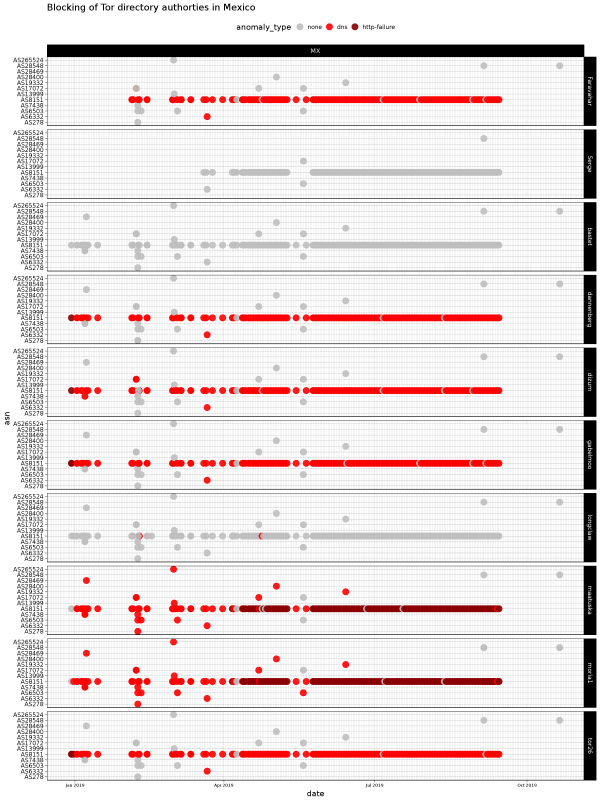
 So, we are already halfway through DebCamp (which means, you can come
and hang out with us in the
So, we are already halfway through DebCamp (which means, you can come
and hang out with us in the